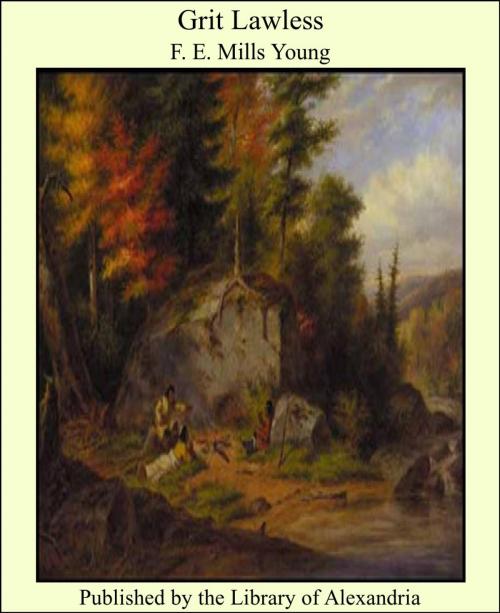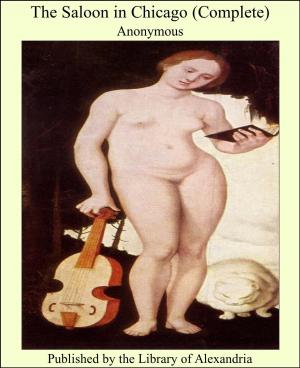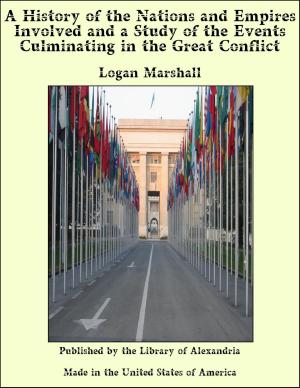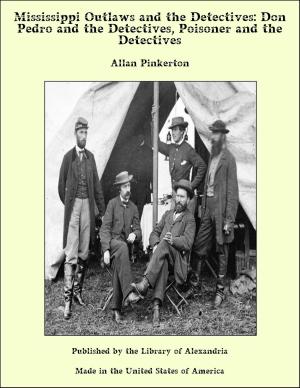| Author: | F. E. Mills Young | ISBN: | 9781465514653 |
| Publisher: | Library of Alexandria | Publication: | March 8, 2015 |
| Imprint: | Language: | English |
| Author: | F. E. Mills Young |
| ISBN: | 9781465514653 |
| Publisher: | Library of Alexandria |
| Publication: | March 8, 2015 |
| Imprint: | |
| Language: | English |
“This job has grown. There has got to be a fourth in it, and the fourth must be a man.—You understand?” The speaker, who was known as the Colonel, took the cigar he was smoking from his mouth the better to emphasise his words, and looked gravely into the serious faces of his audience. It comprised a man of middle-age, bearded, secretive, calculating; and one Other. The Other was little more than a boy. By profession he was a mining engineer, by disposition a scamp, ready to plunge into any undertaking that promised adventure. The boy’s head was bandaged where recently it had been broken for him, and he sat very quiet and silent, which was unusual; as the Colonel was wont to remark, he frequently talked too much. But he was not proud of his broken head and its consequences, so he held his peace. “Do either of you know of a man likely to suit? He must be possessed of a good nerve and a none too tender conscience. He’ll have to put himself outside the law—the business is outside the law. And he must be a man we can trust.” The Colonel looked sharply from one to the Other of his listeners, but neither answered. The young engineer was sulkily examining his finger-nails, displaying the same air of detachment that he had shown throughout. He had received so severe a reprimand over the affair of his broken head that he had felt strongly tempted to sever his connection with the Colonel. Only that spirit of adventure that had led him into it, and an unnatural greed of gain, prevented him from cutting the concern. “I want a man with grit,” the Colonel said slowly. “There must be plenty such men in Africa, if I could only put my hand on one.” As he paused the older man looked up suddenly. Something in the Colonel’s speech had jerked into his mind a name he had almost forgotten. “I knew a man once,” he said, and hesitated because he was not quite sure whether his knowledge of the man justified a recommendation. The acquaintance had been of the slightest; his opinion of his character was based more upon hearsay than deduction, but he believed it was not at fault
“This job has grown. There has got to be a fourth in it, and the fourth must be a man.—You understand?” The speaker, who was known as the Colonel, took the cigar he was smoking from his mouth the better to emphasise his words, and looked gravely into the serious faces of his audience. It comprised a man of middle-age, bearded, secretive, calculating; and one Other. The Other was little more than a boy. By profession he was a mining engineer, by disposition a scamp, ready to plunge into any undertaking that promised adventure. The boy’s head was bandaged where recently it had been broken for him, and he sat very quiet and silent, which was unusual; as the Colonel was wont to remark, he frequently talked too much. But he was not proud of his broken head and its consequences, so he held his peace. “Do either of you know of a man likely to suit? He must be possessed of a good nerve and a none too tender conscience. He’ll have to put himself outside the law—the business is outside the law. And he must be a man we can trust.” The Colonel looked sharply from one to the Other of his listeners, but neither answered. The young engineer was sulkily examining his finger-nails, displaying the same air of detachment that he had shown throughout. He had received so severe a reprimand over the affair of his broken head that he had felt strongly tempted to sever his connection with the Colonel. Only that spirit of adventure that had led him into it, and an unnatural greed of gain, prevented him from cutting the concern. “I want a man with grit,” the Colonel said slowly. “There must be plenty such men in Africa, if I could only put my hand on one.” As he paused the older man looked up suddenly. Something in the Colonel’s speech had jerked into his mind a name he had almost forgotten. “I knew a man once,” he said, and hesitated because he was not quite sure whether his knowledge of the man justified a recommendation. The acquaintance had been of the slightest; his opinion of his character was based more upon hearsay than deduction, but he believed it was not at fault















